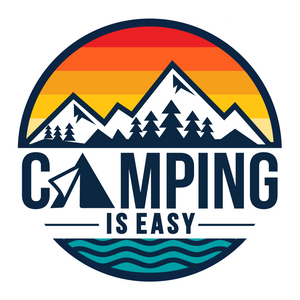When heading out on the trail for a day hike or weekend adventure, you need to know basic survival skills. Something as simple as a rolled ankle could turn into overnight on the trail, but being prepared by having knowledge and some basic gear in your pack can go a long way in helping you make it through the night.
First and foremost, always tell someone your plans, where you will be going, when you should expect to return, and when that person should call for help. Getting into this practice is the easiest way to get assistance to you as soon as possible. If you spend a bunch of time in the backcountry, or hiking alone in remote areas, a personal GPS beacon can also be super useful in helping rescue folks find you if you get hurt or lost.
Your gear can be a game-changer when spending the night, unexpectedly, outdoors. Some folks live and die by the Ten Essentials (US National Parks); others pack extra gear, and some pack very little. You will learn what works for you. Make sure you have the necessities with you and know how to use them. I never hit the trail without the following:
- Water - better too much than too little
- Layers - light and midweight layer
- Extra pair of socks - keep your feet warm and dry
- Rain Gear- minimally a jacket/poncho, pants if you can
- Firestarter - matches, lighter, something to get the warmth going
- Food - snacks for the trail and extra for emergencies
- Multi-tool - if you are a minimalist, a knife will work too.
- Emergency Blanket/Bivy - staying warm is paramount
- First-Aid Kit - so many life savers in such a small kit
- Head Lamp - it gets dark at night on the trail
- Iodine Tabs - these work in a pinch and add no weight to your pack.
- Map - navigation can help you from getting/staying lost
- Depending on the time of your year or the region of the country you’re hiking, a winter hat, gloves, and winter coat may be helpful.
If you do get yourself into a situation where you can’t bring yourself home, rest assured whomever you left your plan with will be calling for help. In the meantime, it is your job to keep yourself safe.
If rain or snow moves in, you need to shelter in place for a while. If you don’t know how to build a temporary shelter, pull out the emergency bivy you have in your pack. Keeping yourself warm and dry is key to helping you survive, and protection from the elements will help you.
Know how to build a fire. A fire provides warmth, and it also can help melt snow for water and boil it for drinking.
Understand basic first aid and have the tools to help you with that. A simple back-country first aid kit should have all the necessities. Sort through the kit before taking it with you on your trip to make sure it is stocked. Recognizing symptoms of certain body conditions can also help you avoid a more complex situation. Some common ones that could happen on the trail are; altitude sickness, hypothermia, dehydration, heat exhaustion, or frostbite. Knowing the early signs and how to handle them could prevent a more severe event.
Having potable water is vital, and you should already have enough to get through the day. But also bring a water filter or iodine tabs to treat the water you might need to drink. Get a water-borne illness while stranded overnight.
Navigational skills can help get you un-lost if you can’t find your way. Have a map and compass with you and understand how to use them. If you know you are lost, stay put, and it is easier for help to find you.
Know how to signal where you are. Use a whistle to make noise or hang a brightly colored piece of clothing that can be seen from a distance. Be as visible as possible.
Basic survival skills will help you do just that, survive. Being prepared with knowledge and gear can help you make it through a night on the trail. Know how to use your equipment and practice your skills before you have to use them during an unexpected time.
Affordable Adventuring: Uncover the 10 Best Stocking Stuffers Under $20 in Our Comprehensive Guide for Campers and Hikers.

